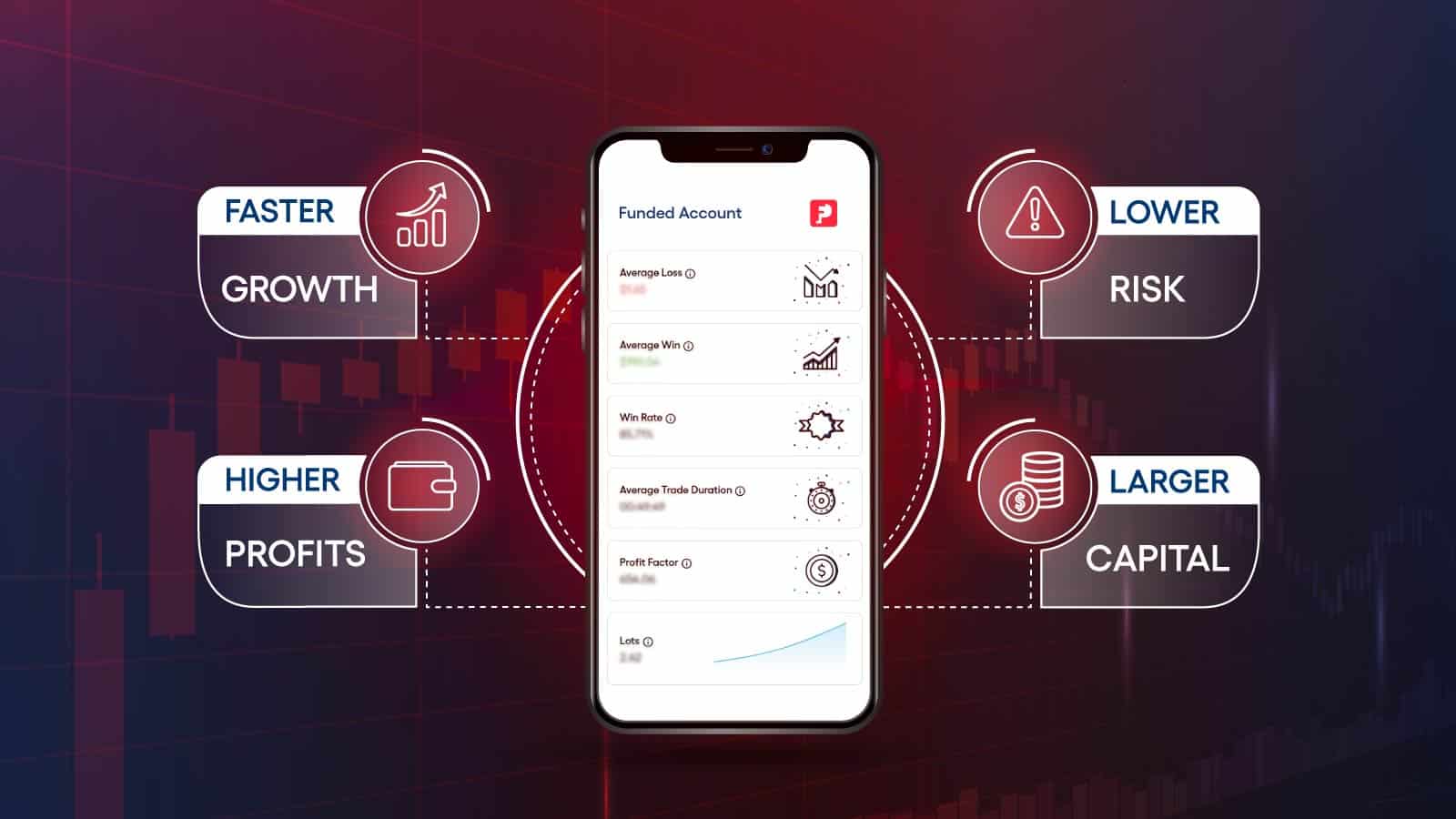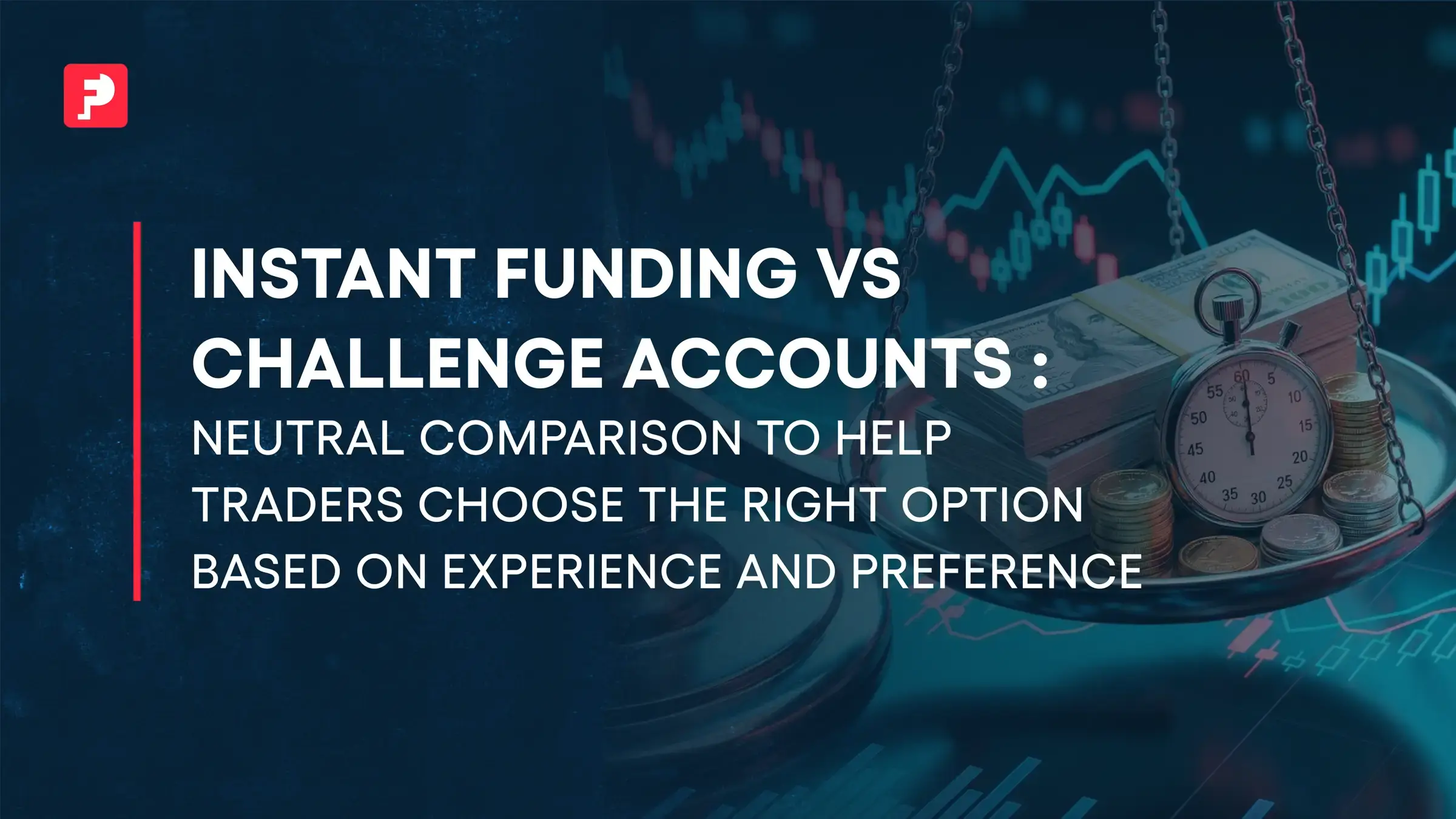Key Takeaways
- Proprietary trading firms (prop firms) provide traders with large capital, advanced trading technologies, and supportive communities. These opportunities can significantly amplify traders’ potential profits while minimizing their personal financial risk.
- Prop firms offer a host of additional resources that aid in the professional development of traders. These include in-house training materials, mentorship programs, and advanced analytical tools. Such resources help traders learn effective risk management and improve future performance based on past experiences.
- Despite potential downsides such as strict risk management rules and trading guidelines, prop firms are increasingly popular for their role in providing access to funds, advanced trading technology, and a professional support network. These factors can be especially beneficial for traders who may not have sufficient capital or are reluctant to risk personal funds.
The Appeal of Forex Trading and the Biggest Challenge
Forex is the biggest financial market in the world: an eye-watering $7.5 trillion was traded daily on the foreign exchange in 2022, and the trend is for it to move upward. Therefore, it is not surprising that so many traders, brokers, and other types of investors are recognizing the vast profit potential of this market and cashing in. The greatest obstacle for most would-be forex traders is, of course, a lack of access to capital. Luckily there is a solution: if you have a consistent record of hitting profit targets and effectively managing risk, you should consider using a prop firm.
Taking Funded Challenges to Gain Access to Larger Capitals
Prop trading is an exciting and potentially lucrative avenue for traders looking to unleash their potential and reap the rewards of their expertise without risking their own money. But what exactly is prop trading, and why are prop “challenges” getting so popular? From access to substantial capital to advanced trading technology and supportive communities, prop trading is transforming the landscape of trading, empowering individuals to take charge of their financial success. In short, anyone can potentially turn a one-time fee into hundreds of thousands – sometimes millions – of company capital to manage.
What are Prop Firms? A quick overview.
We have an in-depth article about this, but proprietary trading (commonly referred to as prop trading) is a practice through which companies permit talented traders to manage the firm’s capital in return for a cut of the profits. Prop firms will assess the suitability and profit-earning potential of traders through an evaluation process during which traders are selected based on their trading skills, risk management abilities, and performance. Traders who meet the firm’s criteria and pass the evaluation (often referred to as a “Funded Account Challenge”) may receive an account with company capital to manage. Profits are shared between the firm and trader (this is known as profit-split and the industry average is 80/20 in the trader’s favor), but any losses are assumed by the firm.
Advantages of Prop Trading
Prop trading firms operate by providing traders with trading platforms, market data, and often additional resources such as training, mentoring, and risk management tools. Prop trading presents many advantages to traders, mostly the opportunity to access significant capital that they may not have on their own. This can amplify their trading potential and enable them to take advantage of market opportunities. Additionally, prop trading firms often foster a collaborative environment where traders can learn from each other and benefit from the collective knowledge of experienced professionals.
In sum, here are the pros of prop trading:
- Access to significant capital
- Advanced trading platforms and technology for improved trading
- Additional resources such as training, mentoring, and risk management tools
- Higher profit potential thanks to larger capital
- Knowledge sharing through collaborative communities
- Experience simulated conditions as close as possible to real market conditions and the dynamics of professional trading
- Access to diversified markets and instruments
- Career advancement and growth
Drawbacks of Prop Trading
Unfortunately, there are also potential downsides and risks associated with prop trading which you should be aware of. Not all traders are built to perform under rigid conditions or risk management parameters. Prop firms’ guidelines and trading regulations may limit some traders’ strategies and decision-making. The profit-sharing schemes may be a frustration to those who compare earnings to the full percentage they would have had by using personal funds. If you are considering prop trading, do bear in mind that should you not meet the firm’s profit targets during the evaluation period, you may fail the evaluation and lose your fees. That said, many firms, such as FunderPro, now offer discounted retrials to traders wishing to make a second attempt with the experience of the first under their belt.
Here is a recap of the cons of prop trading:
- Strict risk management rules and trading guidelines
- Firm keeps a cut of the profits
- Profit targets during the evaluation period
- Limited control over the firm’s capital and restrictions on payouts
- Potential lack of transparency or unrealistic promises from some prop firms
- Risk of scams or unreliable firms
- Dependency on the firm’s infrastructure and technology
Unfortunately, there have been reports of unscrupulous and fraudulent companies in the prop trading space, and traders should assess a firm’s reputation and track record before making any commitment. Particularly, you should be well aware of all the terms and conditions. To make it easier for you, at FunderPro we have transparent terms and conditions and simple rules, and you can always reach out to us via the live chat in the bottom-right corner.
Even considering the black sheep, the popularity of prop firms continues to grow – and for good reason: without the funds made available by proprietary trading firms, many traders couldn’t trade altogether, or would face with the pressured decision of risking personal funds. Access to capital, the opportunity to trade within a professional support network and with top-tier trading technology and software: these are just some of the major benefits of prop trading, which we will cover in more detail below.
Access to Capital
This is – of course – the Sun in the solar system of prop trading benefits: traders can access game-changing funds in simulated markets, keeping most of their profits while bearing minimal or no risk to personal capital.
Independent retail traders may be able to keep 100% of their profits, but they also must source 100% of their funding. Prop trading firms provide traders with substantial capital to trade with, enabling them to maximize their profit potential. With the ability to trade larger positions, traders can diversify their portfolios, explore different trading strategies, and capitalize on favorable market movements. Increasing profit is not the only boon here; larger account sizes are better able to withstand potential drawdowns or the impact of market fluctuations.
Access to Trading Technology
Access to advanced trading technology is a valuable benefit that prop trading offers traders. Proprietary trading firms typically provide traders with cutting-edge trading platforms, advanced charting tools, real-time market data, and sophisticated order execution systems. Imagine the difference that industry-leading technology and trading software could make to your performance! This is particularly true in FunderPro’s case. As a B2B technology provider, we are committed to developing trader-oriented technology that actually helps you be more profitable, so that everybody can win.
Professional Development
Prop firms represent more than simply capital and powerful platforms from which to trade. By joining a prop firm, you can access a host of other resources that contribute to your growth and bring you closer to your objectives. Often, prop firms will offer in-house training materials, including courses, webinars, and other educational resources.
Many funded traders have highlighted the value of mentorship programs sometimes available in prop firms: experienced professionals guiding new traders through the complexities of trading with expert insights and feedback. Risk management tools help traders learn to lock in profits and mitigate potential losses. Many prop firms integrate advanced analytical tools into their platforms, enabling traders to track their progress with data and improve future performance in the light of past mistakes.
Collaborative Community
While it may not be the primary benefit of prop trading, the collaborative community and supportive network provided by this type of trading are highly advantageous. Many funded traders appreciate working in the prop firm environment: trading alongside like-minded individuals offers opportunities to share knowledge, discuss strategies, and transform individual wisdom into collective success. At FunderPro, we created a Discord server, where you can find the support of fellow traders on their way to getting funded.
Alongside exchanging trading tips and staying abreast of market trends, the prop firm community can mentor new traders and provide the emotional support and motivation often missing in a high-pressure and sometimes stressful industry.
Closeness to Real Market Conditions and Access to Instruments
For beginner traders or those looking to test drive a new strategy or diversify their portfolio, prop trading is an excellent opportunity to trade with simulated environments that mimick real market conditions closely and a wide range of assets but with minimal personal investment. Even in the demo accounts often used during the evaluation phase or “Challenge,” traders can experience a replica of the market conditions and complexities of executing trades using substantial capital. Needing to meet certain profit targets or trade within risk parameters offers useful practice.
With the prop firm growing bigger by the day, traders can choose between a diverse range of financial instruments across multiple markets, including stocks, bonds, commodities, currencies, crypto, and derivatives. Prop firms, therefore, present an opportunity to diversify one’s trading strategies and portfolios.
Conclusion
Overall, prop trading can be an attractive option for traders looking to access capital and resources to further their trading careers. Traders should carefully review the terms and conditions and make sure they understand the profit-sharing arrangement in place. Peer-reviewed prop firms with demonstrably satisfied funded traders are a good starting point.
In summary, when it comes to prop trading, the benefits to traders are manifold and growing. Magnifying one’s trading account opens doors to a world of possibilities: most importantly, they are a way for everyone to get a fair shot at fulfilling their financial goals.
Ready to take the challenge? Sign Up Now.






